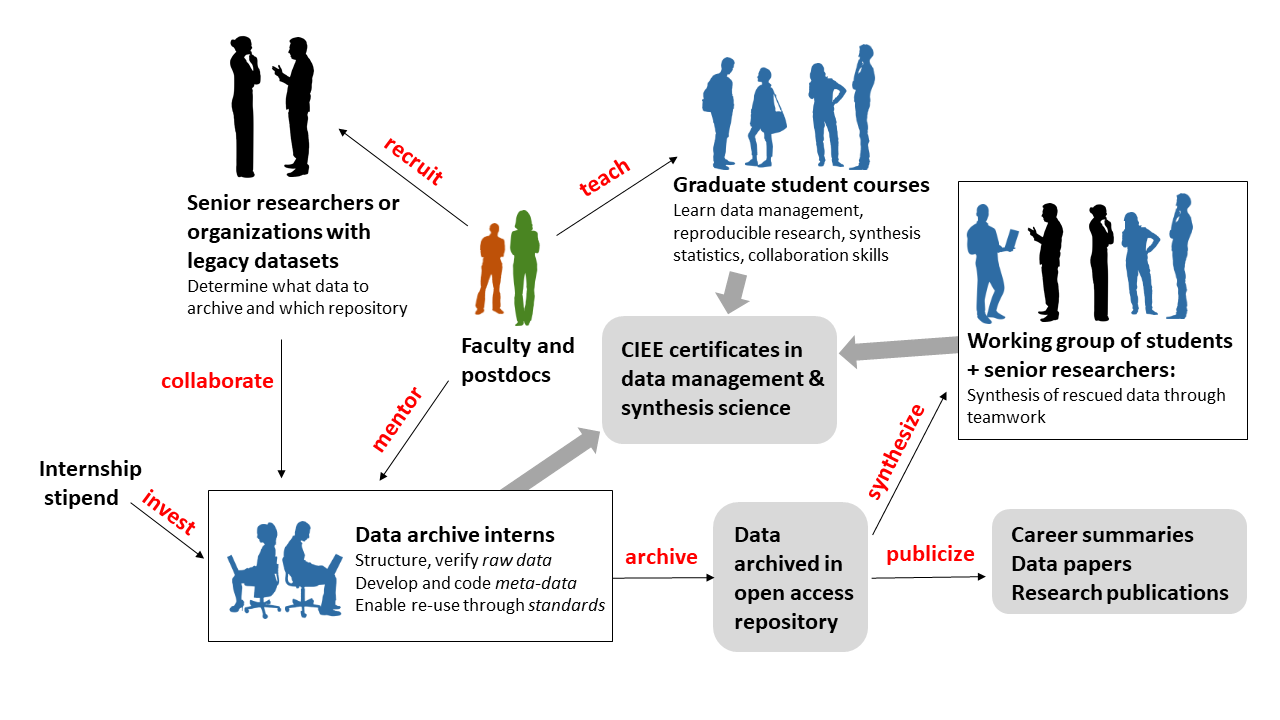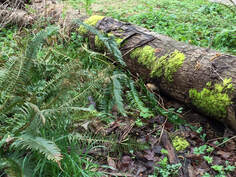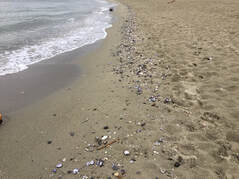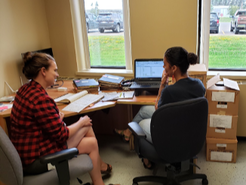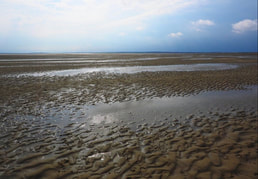LIVING DATA PROJECT
In an age of global change, historical data is invaluable in allowing us to track and predict the threat to our ecosystems. However, this data is itself prone to extinction. The Living Data Project is a nationwide initiative to preserve and breathe new life into legacy datasets in ecology, evolution and environmental science, and to train graduate students in best practices in data management, reproducible research, synthesis statistics and scientific collaboration. We organize data archiving internships, student-dominated working groups, undergraduate hackathons, multi-university courses, and a national certificate program.

